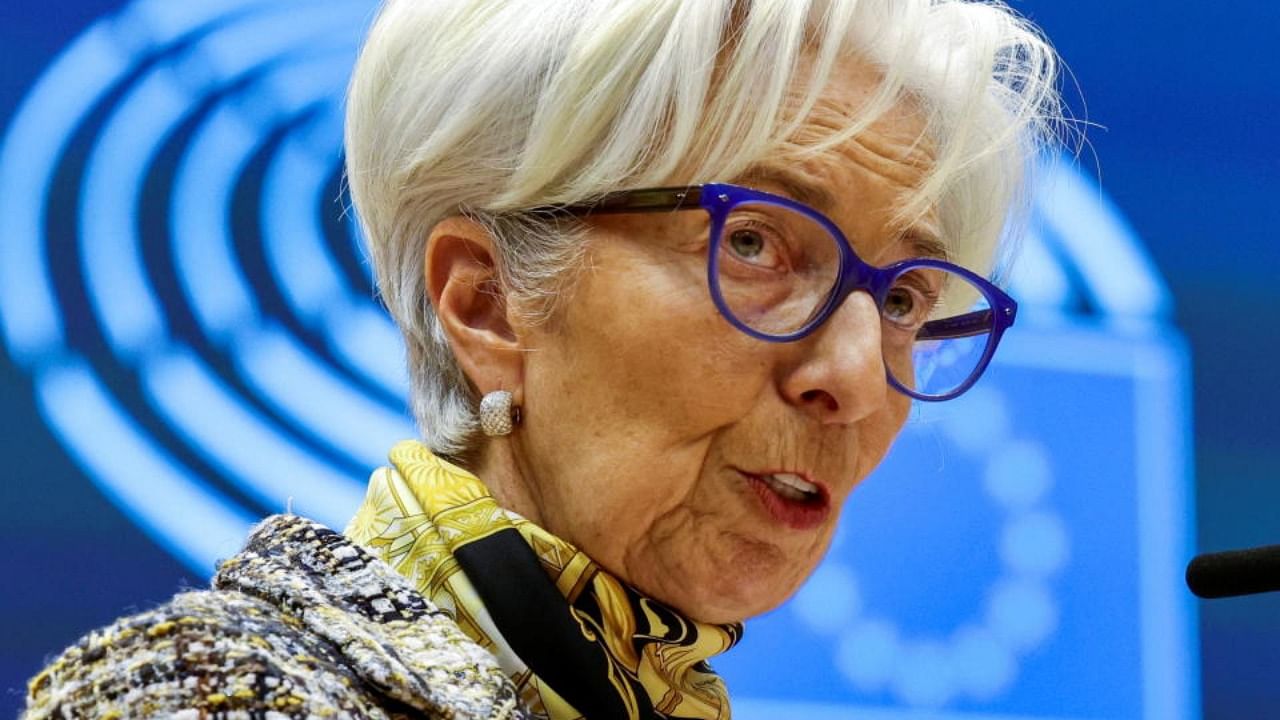
The European Central Bank on Wednesday formally launched a pilot project to create a "digital euro", in response to the growing popularity of electronic payments and the rise of cryptocurrencies.
"Our work aims to ensure that in the digital age citizens and firms continue to have access to the safest form of money, central bank money," ECB president Christine Lagarde said in a statement.
The initial "investigation phase" is to last two years and will focus on the digital euro's design and distribution options, before a final decision is taken on whether to proceed.
The move comes as policymakers around the world explore so-called central bank digital currencies (CBDCs) as a stable and risk-free alternative to crypto assets like bitcoin and Facebook's planned diem currency.
Central banks are also responding to increased demand for digital payment options as cash use continues to decline, a trend fuelled by the pandemic and the desire to avoid contact.
The Chinese central bank is already trialling a digital renminbi in several cities, while the Bank of England has launched a taskforce to look into a possible "britcoin".
The US Federal Reserve and the Bank of Japan are also researching digital currencies.
The ECB has previously signalled it could take around five years overall to bring the e-euro to life, meaning a rollout isn't expected before 2026.
The Frankfurt institution also stressed that any future digital euro "would complement cash, not replace it".
A digital euro would be an electronic version of euro coins and banknotes held in a digital wallet, potentially allowing eurozone citizens for the first time to have accounts directly with the ECB.
A key challenge will be to balance privacy demands with anti-money laundering regulations, with experts saying it's unlikely a digital euro can offer the same kind of anonymity as cash.
To avoid taking business away from commercial banks, ECB executive board member Fabio Panetta told reporters the amount of e-euros individuals can hold in their digital wallets could be capped, for example at around €3,000 ($3,500).
Germany and France welcomed the ECB's decision to take the next step in exploring a digital euro, but underscored that close cooperation with member states was essential.
"A digital euro could entail far-reaching consequences for eurozone citizens and businesses, as well as on financial stability," the finance ministries of both countries said in a joint statement.
"Its launch will be conditional on a political decision, to be taken by member states," they said. "We look forward to working with the ECB on this important topic, both at the political and the technical level."
ECB officials have said that a digital euro could require legislative changes, because the European Union treaties that led to the creation of the ECB did not cover virtual currencies.
The ECB has vowed "to engage with the European Parliament and other European policymakers throughout the project's investigation phase".